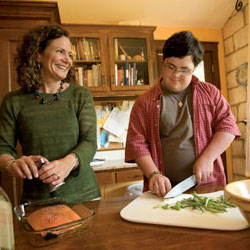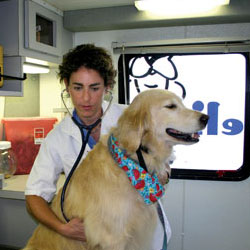Professionals agree that the best way to get business is by referral.
When someone personally recommends you, it means not only that she thinks you are competent at what you do but, more important, that she knows, trusts and likes you. Getting a call saying “so-and-so referred me” means that the “sale” of your services is halfway there.
Problem is, most professionals rely on getting referrals in a haphazard way. They figure if they just get out there and network, business will start coming their way. This kind of “word of mouth” marketing philosophy can produce sporadic results but leaves too much to chance.
If you really want to get serious about marketing, the key is relationship building — but doing it in a systematized way.
First, make a list of all the people who have referred clients to you in the past year or two (no doubt, you’ve captured this vital information in your records). Your goal is to get a Top Twenty List of people who refer to you consistently. Don’t have 20? No problem; just start with the number you have.
Now ask yourself, “Whom do I know who could be a referral source for me?” Past clients are usually a great source. And what about other groups of professionals who come into contact with the kinds of clients you serve — attorneys, CPAs, physicians, dentists, financial planners, ministers, therapists, stockbrokers, bankers? What about relatives and friends who know some of these professionals, or other influential people who could introduce you to some of them?
Now make a list of all these people and plan to contact them over the next few months. Breakfasts and lunches are great for catching up, building your relationships and beginning referral conversations.
At this point, you might balk. Referral conversations? Tongue-tied, anyone?
Of course, you don’t want to begin a conversation by asking for referrals. You want to do what you’d do normally when you meet someone for lunch – catch up. Be interested in what’s going on with the other person’s career and life, and be willing to share what’s happening in yours.
At some point, ask the other person what experiences she’s had in referring other people to your particular professional group (lawyers, CPAs, physicians, etc.) What frustrations has she encountered? What would be her ideal experience? You’re likely to get important information about her expectations and preferences. Then, assuming you can meet her expectations, let her know how you would handle a potential referral.
If you’ve been doing a good job of listening, you will have picked up some information about her personal or professional networks. Then instead of asking, “Do you know anyone you could refer to me?” (too vague; even if she wants to refer someone, her mind is likely to go blank because you’ve asked for too broad a category), you can say, “You mentioned you’re in Rotary (a bicycle club, a particular church, etc.). Are there any CPAs there that you think I should meet?” By asking for a specific type of person, she’s more likely to be able to think of someone.
To be sure the other person feels comfortable with the referral process, be sure to offer options:
Would you prefer to introduce us, perhaps over lunch? Or would you rather call the person first to give him a head’s up that I’ll be calling? Or would you prefer that I just call him and say that you gave me his name? Some people want to be much more involved; others are happy for you to initiate contact and reference them.
If the other person answers your question about possible referrals with something like “Gee, let me give some thought to it,” keep the ball in your court. Rather than saying “Sure, just give me a call if you think of someone,” say something like “I’d really appreciate that. Why don’t I give you a call next week to follow up?” She’ll be much more likely to think of someone knowing that you will be checking back.
If you do get a referral — either on the spot or later — be sure to acknowledge your referral source immediately. Even if the referral does not become a client, you want to send a prompt thank-you note to the person who gave you the lead. If the referral does become a client, consider sending your referral source a gift (if appropriate). And be sure to acknowledge your referral sources during holidays, on birthdays, etc.
Remember, if you’re not asking for referrals, your competition is!
Author: Judi Craig









0 Comments